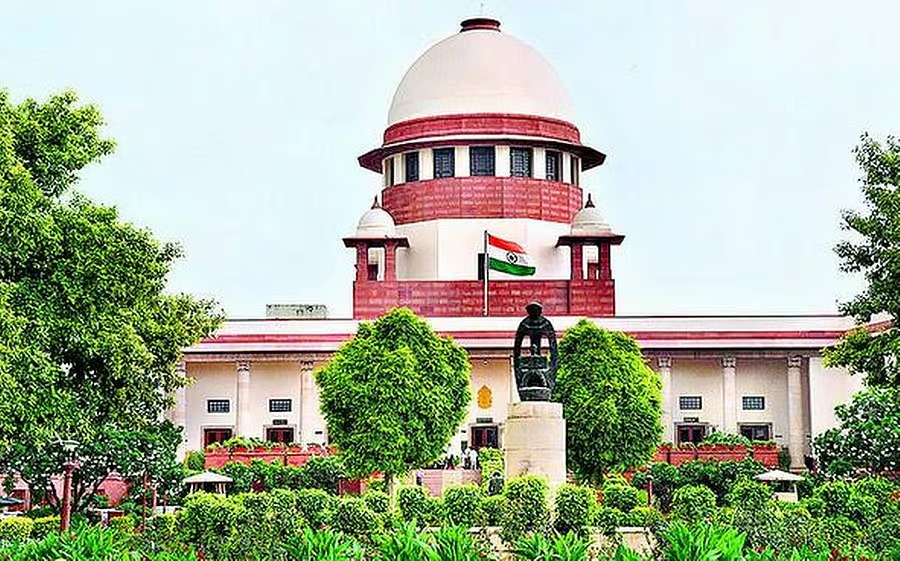
Supreme Court Flags Disturbing Trend: Criminal Law Misused When Consensual Relationships Break Down
Court Says Failed Relationships Cannot Be Branded as Rape Without Evidence of Coercion
Judges Stress Need to Protect Genuine Victims While Preventing Misuse of Law
By Our Legal Reporter
New Delhi: November 25, 2025:
In a landmark observation, the Supreme Court of India has raised alarm over the increasing tendency to invoke criminal law when consensual relationships between adults fail. The Court described this as a “disturbing trend” that risks trivializing serious offences like rape and misusing the criminal justice system.
Also Read: Justice Surya Kant: India’s 53rd Chief Justice Highlights Human Side of Judging
The remarks came while quashing criminal proceedings against a lawyer accused of rape by his client, with whom he had a long-term consensual relationship.
Background of the Case
The case involved a woman who entered a relationship with her lawyer during divorce proceedings. She later accused him of rape, alleging that he had promised marriage but backed out after three years of intimacy.
- The lawyer argued that the relationship was consensual and emotionally involved.
- The woman claimed her consent was conditional on the promise of marriage.
- The trial court-initiated proceedings, but the matter reached the Supreme Court, where a bench of Justices B.V. Nagarathna and R. Mahadevan examined the facts.
Also Read: Delhi High Court Protects Tesla Trademark: Bars Indian Firm from Using ‘Tesla’ Name for EVs
Court’s Observations
The Supreme Court made several critical observations:
- Consensual intimacy cannot be retrospectively branded as rape: Physical intimacy during a functioning relationship cannot be criminalized merely because the relationship did not culminate in marriage.
- Grave misuse of criminal law: The Court noted a worrying tendency to give failed relationships the “colour of criminality,” which inflicts stigma and injustice on the accused.
- Rape charges must be reserved for genuine cases: The offence of rape should only be invoked where there is clear evidence of sexual violence, coercion, or absence of free consent.
- Conditional consent based on false promises: The Court acknowledged that if a promise of marriage was made in bad faith solely to exploit a woman, consent could be vitiated. In such cases, rape charges may be valid.
Also Read: Supreme Court Clears $570M Settlement in Sandesara Brothers’ $1.6B Bank Fraud Case
Wider Legal Context
This ruling is consistent with earlier judgments:
- In Anmol Bhagwan Nehul vs. State of Maharashtra (2025), the Supreme Court quashed rape charges, holding that a consensual relationship turning sour cannot justify criminal prosecution.
- In Business Standard’s coverage (2024), the Court flagged the “worrying trend” of criminalizing long-term consensual ties after break-ups.
- The Court has repeatedly emphasized that while genuine cases of exploitation must be protected, misuse of Section 376 IPC undermines the seriousness of rape as an offence.
Implications for Society
The ruling has significant social and legal implications:
- Protection of genuine victims: The Court clarified that women deceived by false promises of marriage made in bad faith remain protected under law.
- Safeguards against misuse: At the same time, men cannot be unfairly prosecuted when relationships fail naturally.
- Balance of justice: The judgment seeks to balance protection of dignity with prevention of misuse of criminal law.
- Social awareness: The ruling highlights the need for society to distinguish between personal discord and criminal conduct.
Also Read: No ITR Needed for Pensioners Earning Up to ₹39,500 Monthly Under New Tax Rules
Expert Views
Legal experts and social commentators have welcomed the ruling:
- Lawyers argue that the judgment prevents misuse of rape laws while safeguarding genuine victims.
- Policy analysts note that the ruling reinforces the principle of natural justice and prevents over-criminalization of personal disputes.
- Social activists stress that while misuse must be curbed, courts must remain sensitive to cases where women are genuinely exploited under false pretences.
Broader Impact on Criminal Justice
The ruling is expected to reshape how courts handle cases involving failed relationships:
Also Read: High Court Rules: Married Disabled Daughter Entitled to Father’s Family Pension
- Stricter scrutiny of evidence: Courts will demand credible proof of coercion or fraud before allowing rape charges.
- Reduced frivolous cases: The judgment may discourage filing of criminal complaints in cases of mere personal discord.
- Preservation of dignity: By preventing misuse, the ruling ensures that rape laws retain their seriousness and protective scope.
- Guidance for lower courts: The Supreme Court’s observations will serve as precedent for trial courts across India.
Conclusion
The Supreme Court’s ruling is a landmark in balancing personal freedom with criminal accountability. By condemning the misuse of criminal law in failed relationships, the Court has reinforced the principle that rape charges must be reserved for genuine cases of coercion and exploitation.
Also Read: Court Allows ED to Auction Nirav Modi’s Mercedes Cars as Maintenance Costs Exceed Value
At the same time, the judgment acknowledges the social reality that women may consent to intimacy based on promises of marriage. In such cases, if the promise is fraudulent, the law must protect them.
Also Read: New GST Rules: Businesses Risk Suspension Without Bank Account Update
This nuanced approach ensures fairness, prevents misuse, and strengthens the credibility of India’s criminal justice system.
Also Read: How a ₹50 Lakh Home Loan Can Balloon to ₹98 Lakh – And the One Step That Saves ₹13 Lakh
Also Read: Gujarat High Court Grants Relief to 82-Year-Old Woman in Income Tax Case
Also Read: Allahabad High Court: GST Department Cannot Invoke Section 74 Without Fraud Findings
Also Read: Himachal Pradesh High Court Rules: Only Surviving Spouse Can Inherit Tenancy Rights